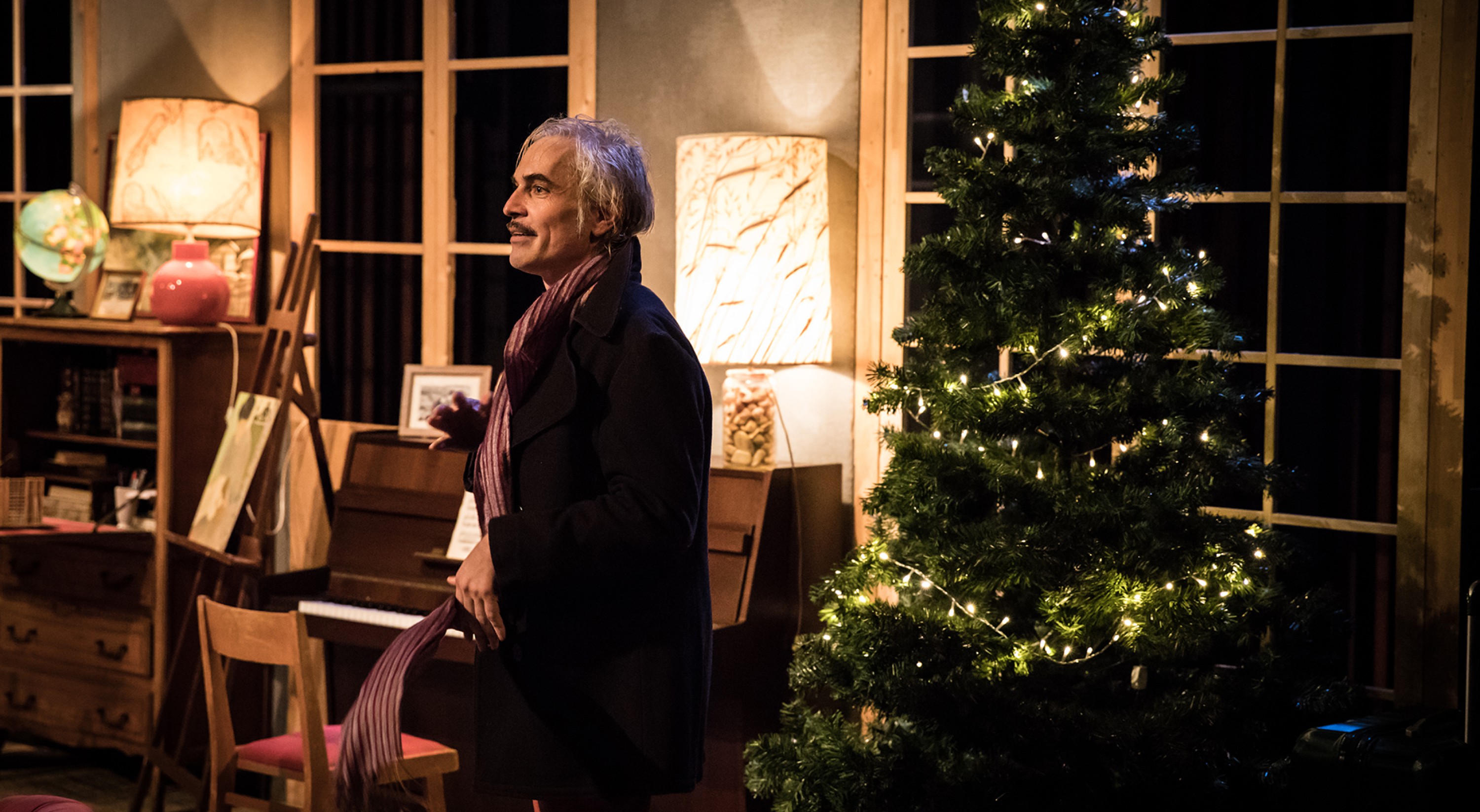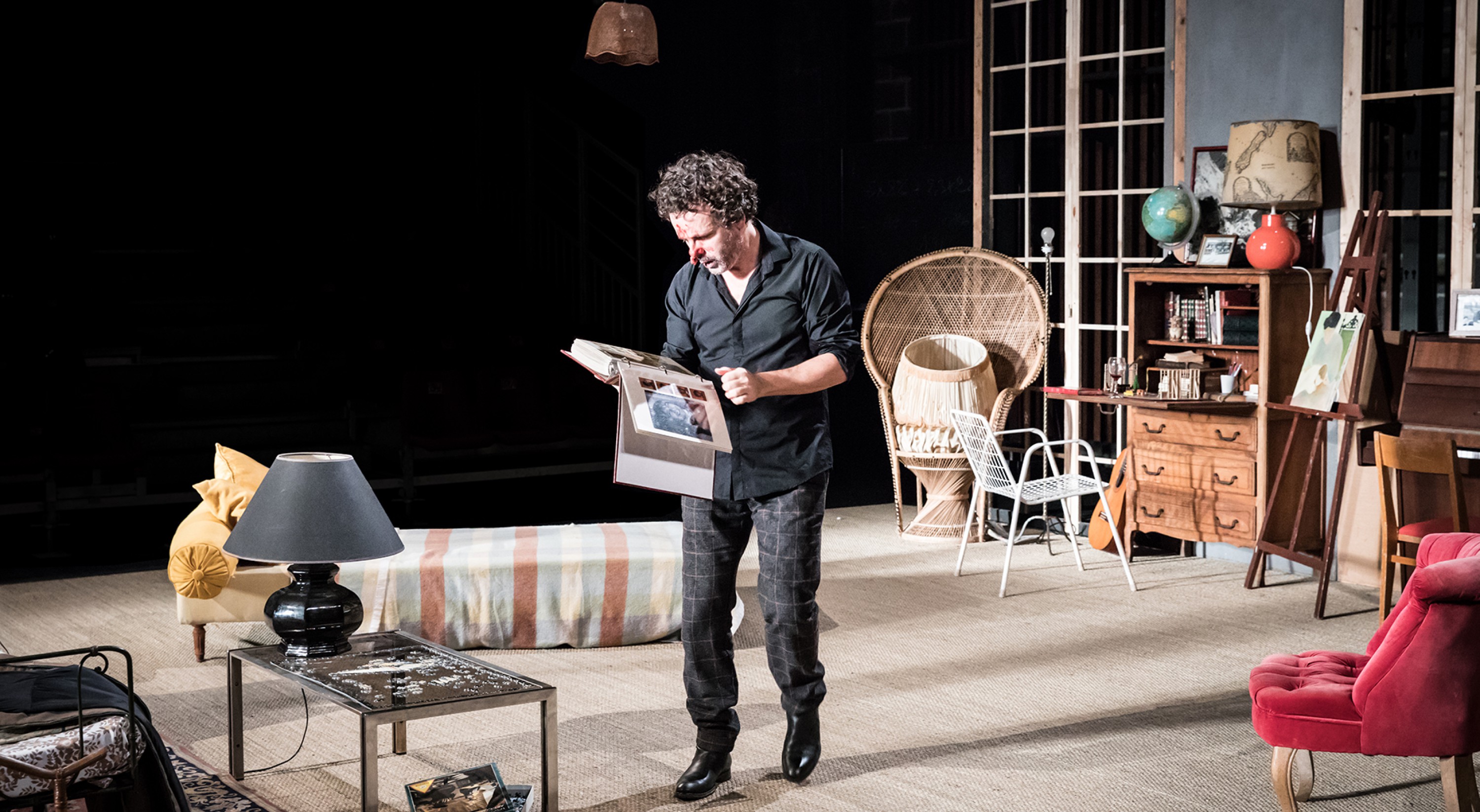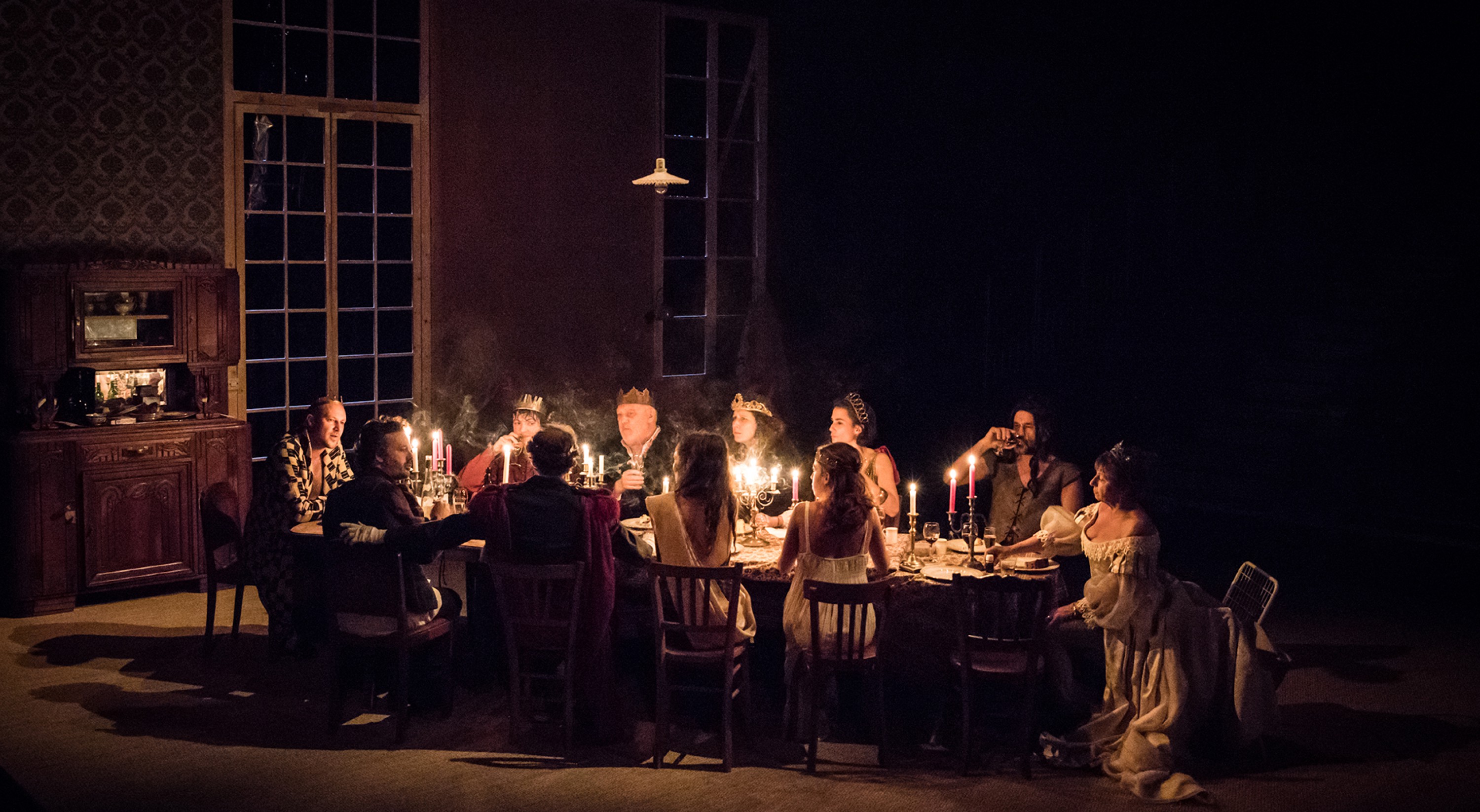Julie Deliquet
Un conte de Noël
decemberdec 6
decemberdec 13
decemberdec 19 – 20
januaryjan 10 - february – feb 10
Directed by Julie Deliquet
Based on Un conte de Noël by Arnaud Desplechin
With Julie André, Stephen Butel, Éric Charon, Solène Cizeron, Olivier Faliez, Jean-Christophe Laurier, Marie-Christine Orry, Agnès Ramy, Thomas Rortais, David Seigneur, Hélène Viviès, and Jean-Marie Winling
Dramaturgy, Agathe Peyrard
Stage design, Julie Deliquet, and Zoé Pautet
Produced by Collectif In Vitro
Coproduced by Théâtre de Lorient – CDN de Bretagne ; La Comédie de Saint-Étienne – CDN ; La Coursive – Scène nationale de la Rochelle ; Odéon-Théâtre de l’Europe (Paris) ; and Festival d’Automne à Paris
In association with Odéon-Théâtre de l’Europe ; and Festival d’Automne à Paris for performances at Odéon-Théâtre de l’Europe
In association with La Ferme du Buisson – scène nationale de Marne-la-Vallée (Noisiel) ; and Festival d’Automne à Paris for performances at La Ferme du Buisson – scène nationale de Marne-la-Vallée (Noisiel)
With support from Adami // First performed on the 15th October 2019 à La Comédie de Saint-Étienne – CDN
In partnership with France Inter
For her latest creation with the In Vitro collective, Julie Deliquet tackles the screenplay of Un conte de Noël by Arnaud Desplechin, a story of a family, with all its painful unsaid truths and bitter jealousies. The director blends this drama with the Shakespearian fervour of King Lear and A Midsummer Night’s Dream.
It is Christmas, the time of year for family get-togethers. Junon and Abel, an elderly, loving couple, gather their children together for the celebrations, even Henri, formerly banished, by his sister, the implacable, melancholic Elisabeth. The memory of an elder brother who died as a child hovers over the Roubaix family home. From out of this grieving a form of hatred rears its head, but the blood ties nevertheless persist. And little by little, the children, now grown-ups, take on the role of those who one day brought them into this world.
The In Vitro collective stages this family history in which the spoken word and the various avowals transform the playing space into a cathartic place at the crossroads between theatre and psychoanalysis. In complement to Arnaud Desplechin’s bitter-sweet screenplay, with its verbal jousting matches and unrelenting score-settling where the truth hurts just as much as it amuses, the collective blends in a mixture of monsters and myths, echoes of King Lear and A Midsummer Night’s Dream. Shakespeare finds its way into Arnaud Desplechin’s dialogues: the screenplay resonates in a way similar to these founding, archaic theatrical fables. Via a bi-frontal staging, the stage becomes polyphonic space in which the different accounts are multiply, interweave and answer each other. At the heart of this family huis-clos, life is at stake just as much as love is, the one we receive from our family and the one we invent as we grow up.
––––––
Running time : 2h20
In the same place



